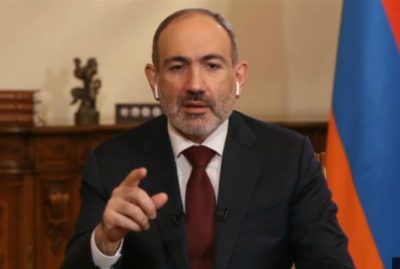YEREVAN (RFE/RL) — Prime Minister Nikol Pashinyan has confirmed Russian President Vladimir Putin’s assertion that he could have stopped the war in Nagorno-Karabakh three weeks before the Armenian-Armenian ceasefire brokered by Moscow on November 9.
In televised remarks on November 17, Putin said that the Armenian side would have suffered fewer territorial losses and, in particular, retained control of the strategic Karabakh town of Shushi had Pashinyan agreed to Azerbaijan’s terms of a ceasefire on October 20.
Shushi was captured by Azerbaijani forces two or three days before the subsequent truce agreement halted the war on November 10. Azerbaijan agreed to stop its military operations in return for an Armenian pledge to withdraw from three districts around Karabakh.
Baku regained control over four other districts, which had been occupied by Karabakh Armenian forces in the early 1990s, during the latest war. Its troops also captured Karabakh’s southern Hadrut district.
Speaking to the Rossiya-24 TV channel, Putin said: “On October 19–20, I had a series of telephone conversations with [Azerbaijani] President Aliyev and Prime Minister Pashinyan. At that time, the armed forces of Azerbaijan regained control over an insignificant part of Nagorno-Karabakh, namely, its southern section.
“On the whole, I managed to convince President Aliyev that it was possible to end hostilities, but the return of [Azerbaijani] refugees, including to Shusha, was a mandatory condition on his part. Unexpectedly for me, the position of our Armenian partners was that they perceived this as something unacceptable.”










